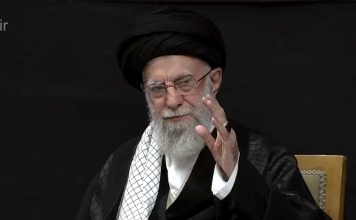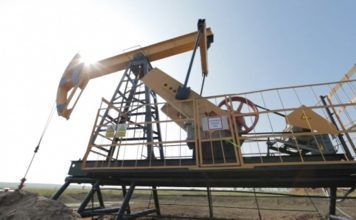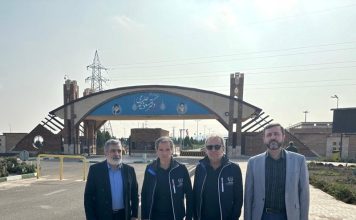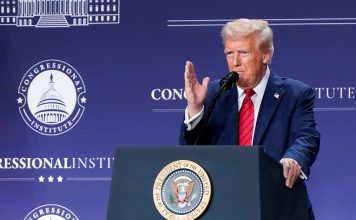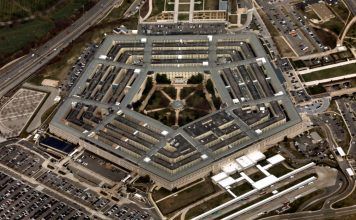By Kayhan Life Staff
The chronic economic crisis in Iran has impacted the country’s healthcare systems, with state and private hospitals facing a shortage of medicine and medical equipment.
While patients face massive medical bills, hospital doctors warn of a shortage of essential drugs, surgical facilities, and equipment.
Some doctors have even warned that the severe financial crisis in the healthcare sector may force some clinics and hospitals to perform “obsolete surgeries” (outdated medical procedures) to generate revenue.
[aesop_image img=”https://kayhanlife.com/wp-content/uploads/2020/04/2020-04-01T085236Z_1506810700_RC2KVF9CZ5K3_RTRMADP_3_HEALTH-CORONAVIRUS-IRAN-USA-scaled.jpg” panorama=”off” credit=”FILE PHOTO: Nurses wearing protective suits, prepare a patient to be transferred to Masih Daneshvari Hospital, in Tehran, Iran. REUTERS./” align=”center” lightbox=”on” captionsrc=”custom” captionposition=”left” revealfx=”off” overlay_revealfx=”off”]
In its July 3 edition, the Tehran-based Etemad newspaper interviewed administrators of several state and private hospitals about the shortage of medical equipment.
In the article headlined “The Times of Empty Pockets,” doctors highlighted the elimination of the government’s “preferred” foreign exchange rate of 4,200 tomans to a U.S. dollar as the principal reason for hospitals’ inability to buy medical equipment.
The Iranian toman has continually dropped against the dollar in recent years. The current exchange rate in the open market is 50,200 tomans to a dollar.
The government introduced the “preferred” low exchange rate of 4,200 tomans to a dollar a few years ago to help Iranian importers, but stopped the scheme in April 2022.
Dr. Ahmad Mir, a general surgeon at Tehran’s Jam Hospital, spoke to Etemad about challenges facing surgeons in Iran because of the lack of vital equipment or the long wait to receive them.
Dr. Mir, a former Chief Executive Officer (CEO) of Jam Hospital (from 2005 to 2008), warned that healthcare quality would suffer severely, given the high cost of medical equipment and hospitals’ inability to meet their daily operational expenses.
According to Dr. Mir, the medical equipment required for abdominal wall surgery costs a few thousand dollars. Therefore, surgeons are forced to perform “obsolete abdominal surgery,” with the threat of a high risk of infection, given that hospitals cannot afford to buy the required medical equipment.
“We cannot deny that the quality of healthcare is deteriorating in all hospitals, given the current financial situation the state and private hospitals are facing,” Dr. Mir noted. “Private hospitals are in danger of going bankrupt.”
Despite ongoing warnings by health professionals regarding the shortage of medicine, equipment, and facilities, the government has yet to address the problem.
Soon after the government submitted the 2023-24 budget bill to the Majlis (Iranian Parliament) in April, Mohammad Raiszadeh, the director of the Islamic Republic of Iran Medical Council (IRIMC), wrote to Iranian President Ebrahim Raisi, warning him about the dire consequences of eliminating the “preferred” foreign exchange rate from the budget, including the ability to buy medicine and medical equipment.
The economic crisis has severely weakened the country’s scientific exchange with the global medical community.
“The high exchange rate and difficulties in getting visas has made it next to impossible for members of the Iranian medical community to attend international seminars,” said Dr. Ali Jafarian, a faculty member at the Tehran University of Medical Sciences (TUMS) and the head of the Hepatobiliary Surgery and Liver Transplantation Division department at Imam Khomeini Hospital Complex in Tehran.
“The trend will diminish the country’s scientific contact and day-to-day medical services,” Dr. Jafarian warned.
Patients are also overwhelmed by the high cost of medical care and hospitalization.
Dr. Mohammadali Mohseni-Bandpei, a member of the Health and Medical Commission of the Majlis, recently warned about the shortage of 200 types of medicines, adding that the country “faces a political, social, medical and healthcare crisis unless a solution is found soon.”
Dr. Bandpei blamed the government’s mismanagement of the country’s medical needs, reportedly forcing many pharmaceutical companies to move their businesses and operations to Turkey.
Dr. Bandpei cited “serious obstacles, including long bureaucratic processes to get drug manufacturing permits or importing medical equipment” as the principal cause of pharmaceutical companies moving out of the country.
The Health and Medical Commission of the Majlis has blamed “pharmaceutical mafias” and the “government’s price control” for the problems pharmaceutical companies face in Iran.
The commission has argued that although successive governments could not protect financial and moral investments, the situation has worsened under President Raisi’s administration.
The Health and Medical Commission of the Majlis report on the government’s handling of the country’s requirements for medical equipment and supplies said the shortage of medicine, which reached a critical level last fall and winter, was ongoing.
Drug shortages and massive increases in the price of medical equipment, especially those needed by hospitals and clinics, have reached a critical level, seriously impacted the entire healthcare sector, and disrupted the daily operations of hospitals and clinics.
There have been several reports in recent months on pharmacies raising drug prices and public concerns over the shortage and high cost of medicines.
In April, the Tehran-based Khabar-Online news agency reported on cancer patients’ inability to receive chemotherapy because of a shortage of medicine.
“Except for the Vinblastine, manufactured in Germany or Hungary, the price of other chemotherapy medicines in the market or sold by independent dealers have risen astronomically,” the report said. “For instance, people have to pay between $927 and $1,673 for an injection of Keytruda on the open market and between $1,394 and $1,859 for an injection of Oncaspar.”
Vinblastine is a chemotherapy medicine used to treat certain types of cancer.
Pembrolizumab, sold under the brand name Keytruda, is an antibody used in cancer immunotherapy that treats melanoma, lung cancer, head and neck cancer, Hodgkin lymphoma, stomach cancer, cervical cancer, and certain types of breast cancer.
Pegaspargase, sold under the brand name Oncaspar, is a medication used to treat acute lymphoblastic leukemia.
On July 4, the Food and Drug Administration of the Islamic Republic allowed the Tehran-based Alborz Darou Pharmaceutical Co. to increase prices for 12 medicines to cover the rising cost of raw materials. The company had increased the prices for 40 drugs three days earlier.
There has also been a severe shortage of imported medicines or the raw material domestic manufacturers must bring into the country from abroad, endangering the lives of patients who rely on those drugs.
In an open letter to President Raisi, families of several hemophiliac children highlighted their inability to access the much-needed treatment and demanded less expensive medicines.
Deteriorating healthcare facilities, equipment, and services, poverty, and the inability to pay their medical expenses have forced families to go to state hospitals, which cannot cope with the increasing number of patients. As a result, many private hospitals and clinics are on the verge of bankruptcy.
However, government officials have rejected the shortage of medicine as a chronic problem.
In an interview with the Iranian Labor News Agency (ILNA) on July 4, Iran’s Minister of Health and Medical Education, Bahram Eynollahi, argued that reports about the shortage of 200 medicines were “inaccurate,” adding that “we have eliminated every cause of medicine shortage in the past two weeks.”
The government recently rolled out the “electronic coupon” scheme for low-income families, helping them to purchase food and other life essentials. It has now planned to include medicine in the list of items people can get with electronic coupons.
Alireza Asgarian, Deputy Minister of Cooperatives, Labor, and Social Welfare for welfare affairs, has confirmed that the “government will subsidize essential goods such as bread and medicine,” adding “the subsidy scheme for large items which is food basket will also include health basket soon. The health basket will include health and medicinal goods.”
Iran’s Government Must Stop Executions of Protesters, Says UN Fact-Finding Mission


